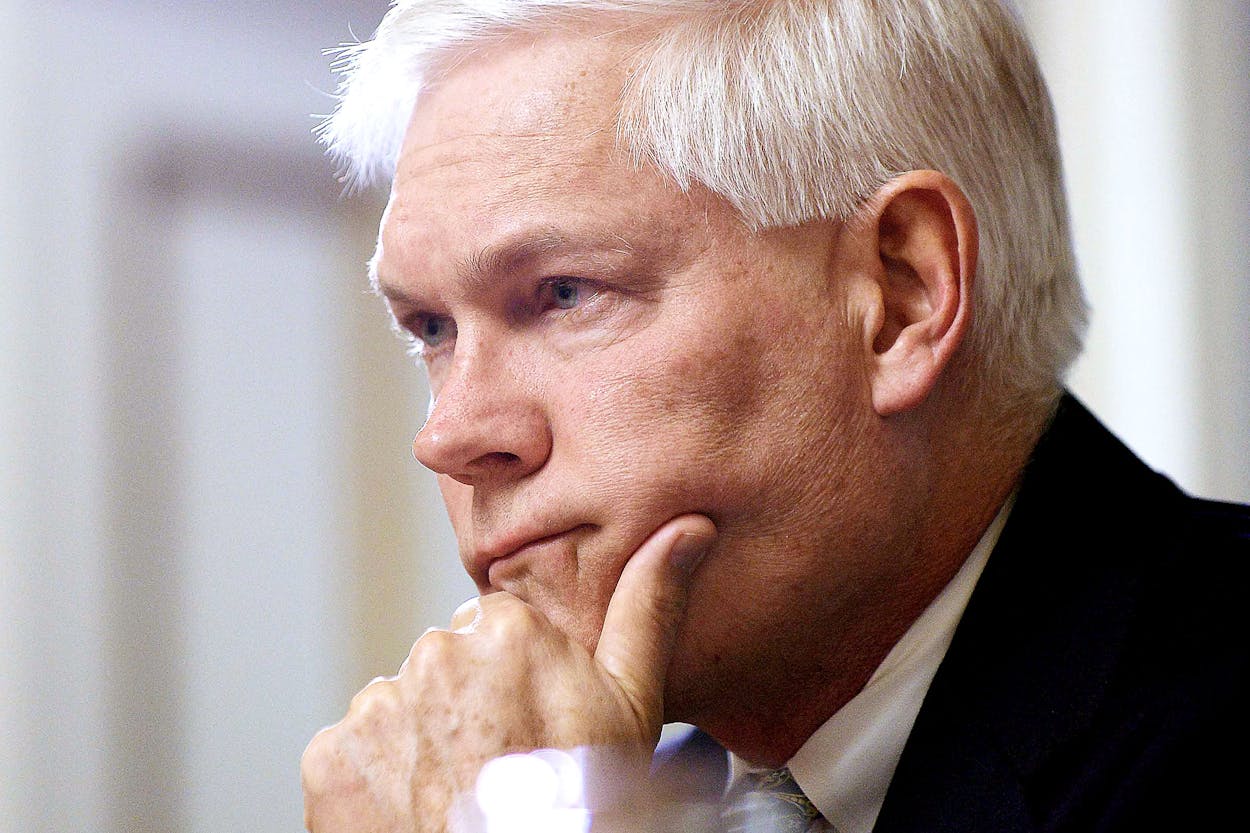In early October, a day after announcing in Waco his run for the U.S. House of Representatives, former Dallas-area congressman Pete Sessions went on Lone Star Politics, a local NBC program, to explain his decision to relocate and seek a new office. Sessions, an eleven-term congressman, was candid that challenging Democrat Colin Allred, who had unseated him in 2018, would require too much money. But, he explained, the ongoing impeachment inquiry against President Donald Trump had convinced him his service was necessary in a district where he had a clearer path to victory. “We need to understand this race, even in Texas, could be about the presidency,” Sessions said, “and I want to get in that fight.”
Within a week, a federal indictment was served to Igor Fruman and Lev Parnas. The Soviet-born businessmen were at the center of the impeachment inquiry and had reportedly helped Trump’s personal attorney, Rudy Giuliani, pressure Ukrainian officials to launch an investigation of Democratic presidential candidate Joe Biden’s son, Hunter, who had done business in that country. The indictment alleged that Fruman and Parnas had promised in 2018 to raise $20,000 toward the reelection of “Congressman-1” in return for his assistance in getting the U.S. government to remove Ukraine ambassador Marie Yovanovitch, whom they accused of bias against President Trump. Congressman-1 was quickly identified as Sessions. He had accepted $5,400 in donations from the pair and had written a letter in May 2018 to Secretary of State Mike Pompeo calling for the ambassador’s removal.
Sessions, who declined a request for interview, is not accused of any crimes and has downplayed his conversations with Parnas and Fruman, saying they concerned the oil business. Nonetheless, in other campaigns, his involvement in the impeachment scandal might have been political fodder for attacks. But his challenger in the runoff to replace retiring Republican Bill Flores, Waco businesswoman Renee Swann, shares Sessions’s public devotion to Trump. Competing in a bright-red district—stretching from Waco to the eastern edges of Travis County—Swann has approached the scandal cautiously, understanding the risks of implicating the president in any criticism of her opponent.
On her website Swann refers only vaguely to the scandal, identifying Sessions as having “legal problems.” A recent Sessions campaign finance disclosure reveals that he’s spent $80,000 in campaign funds on lawyers in Dallas and Washington whom he started paying the same month he was mentioned in the indictment of Fruman and Parnas. But on the stump and in two debates, Swann hasn’t called attention to the matter in explicit terms.
“If there’s [campaign material] out there, I must have missed it,” said Jon Ker, the chairman of the McLennan County Republican Party.
Swann’s campaign has instead sought to depict Sessions as a career politician and “fixture in the swamp” who went rogue. “I don’t think it [implicates Trump],” Swann’s campaign manager Michael Blair told me of the Sessions scandal. “As far as I can tell, no one from the Trump administration or the Trump campaign asked Pete Sessions to be involved with former Ukrainian businessmen who were trying to break campaign finance laws.”
Ker believes the scandal is a nonissue to voters. “It’s been several weeks, if not longer, since anyone’s asked me anything about Ukraine involvement,” he said. “I don’t think that is an issue in this district.”
Whether Swann’s two-step works will be made clear Tuesday. Neither candidate has yet received Trump’s endorsement or money from the National Republican Congressional Committee. Polling has been scarce, but in March, with a primary field of twelve candidates, Sessions received 32 percent of the vote to Swann’s 19 percent.
- More About:
- Politics & Policy
- Donald Trump
- Waco






